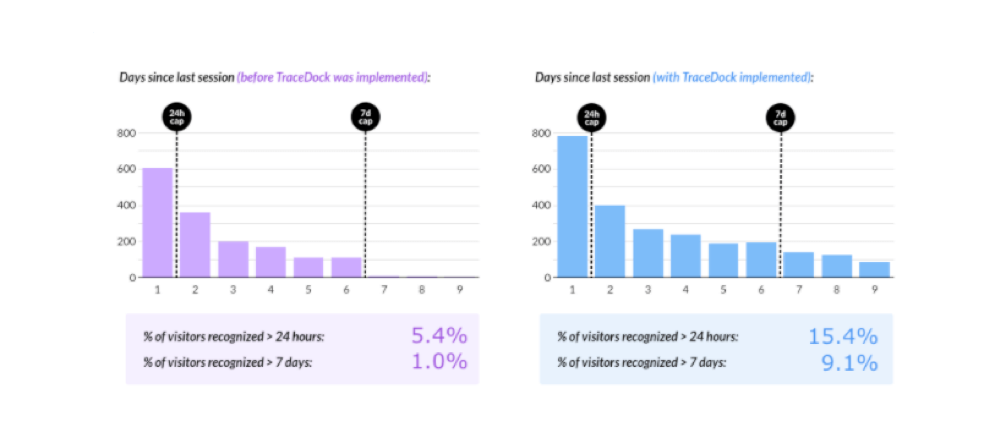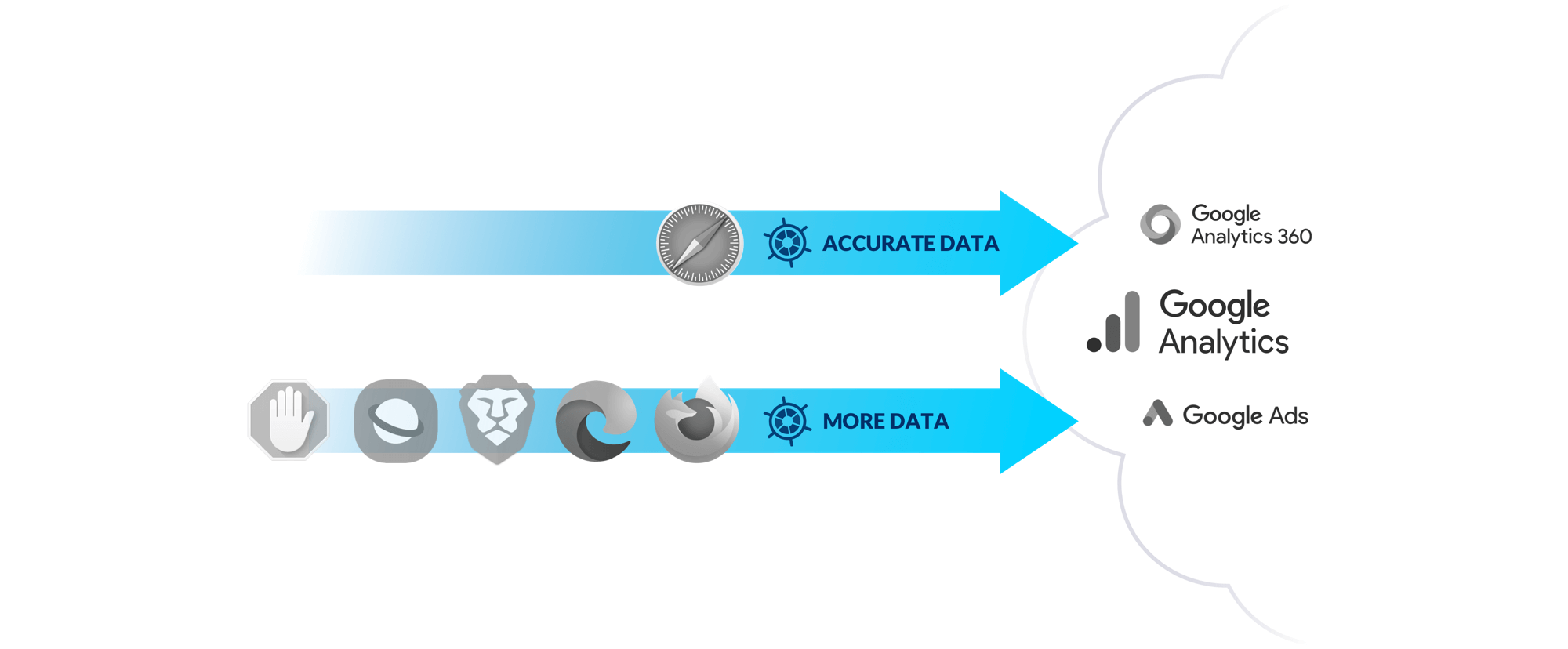Evaluation
Evaluate the impact of the webtracker
Evaluation focus: First-party data collection
This evaluation page is mainly focused on the the webtracker product First-party data collection.
The evaluation of the products Cookieless data collection and Server-side transaction tracking is slightly different. Our support team will gladly explain the details during a personal video call.
The webtracker improves the data quality of your Google Analytics.
How much this is, depends on your customer audience, for example on:
- How tech-savvy is your audience?
- How long is your average purchase funnel?
There are (other) several factors influencing the impact that the webtracker can have on your account. This page explains the two steps in how to evaluate the impact
after the webtracker is live on your website.
Part 1: More accurate data
This first part is primarily focused on the Safari browser.
All cookies of users using Safari's Intelligent Tracking Prevention (ITP) will be extended to the expiration date as set by your cookie policy, or up to 180 days. This means that if a user consents to placing cookies, they can return to the website for up to this period (or a maximum of 180 days) for the webtracker to recognize their visit.
Do the analysis: DataStudio dashboard

You can of course extract this data by yourself from your Google Analytics account.
However, to make the analysis easier, we have created a DataStudio dashboard.
Within this dashboard you can select your property and easily analyse the increase
in returning visitors.
Open DataStudio dashboard{ .md-button .md-button--primary }
Do you need some assistance understanding this dashboard?
Please don't hesitate to contact our support team.
Learning phase: minimum of 2 to 3 weeks
The webtracker extends the cookie duration for all Safari users. However this can only be done after the webtracker is installed, and thus can not work retrospectively. As such, leave a minimum of 2 to 3 weeks open between the two time periods that you want to compare, we call this the “learning phase” for the webtracker.
Desirable outcomes
The webtracker extends the cookie duration for all Safari users up to the period for which you requested consent.
This means that if a user consents to placing cookies, they can return to the website for up to this period
(or a maximum of 180 days) for the webtracker to recognize their visit.
After the webtracker has been installed, what we want to see is:
- A decrease of unique visitors in Safari (Outcome 2 in the Data Studio dashboard)
- An increase of returning visitors in Safari (Outcome 3 in the Data Studio dashboard)
Part 2: More data
Ad-blockers and browsers as Firefox or Microsoft Edge block the URL https://google-analytics.com.
the webtracker detects this and forwards this data anonymously to your Google Analytics.

Do the analysis: Google Analytics
After two to three weeks you can evaluate the impact of the webtracker, by creating a custom segment in Google Analytics:
- Go to Audience > Overview and compare this segment to your overall visitors (‘all users’)
- Go to Conversion > Ecommerce > Overview to compare this segment to your usual traffic (‘all users’)

This segment will contain all users, pageviews and events forwarded by Google Analytics in the case that
an ad blocker of tracking prevention blocks the URL https://google-analytics.com. Note, it will not contain the
data from users with Safari.
Desirable outcomes
After the webtracker has been installed, what we want to see is:
- A healthy segment in terms of sessions and users, compared to the segment All users
- Similar metrics in term of Sessions per user, average session duration and bounce rate
- Similar conversion rate between the segment All users and the custom the webtracker segment
No (significant) results?
What if you don't see any (significant) results?
Some clients need an extra 2-4 weeks to see a significant change. Or, if you have any other doubts about the validity of the outcomes, don’t hesitate to contact our support team.
Updated 23 days ago